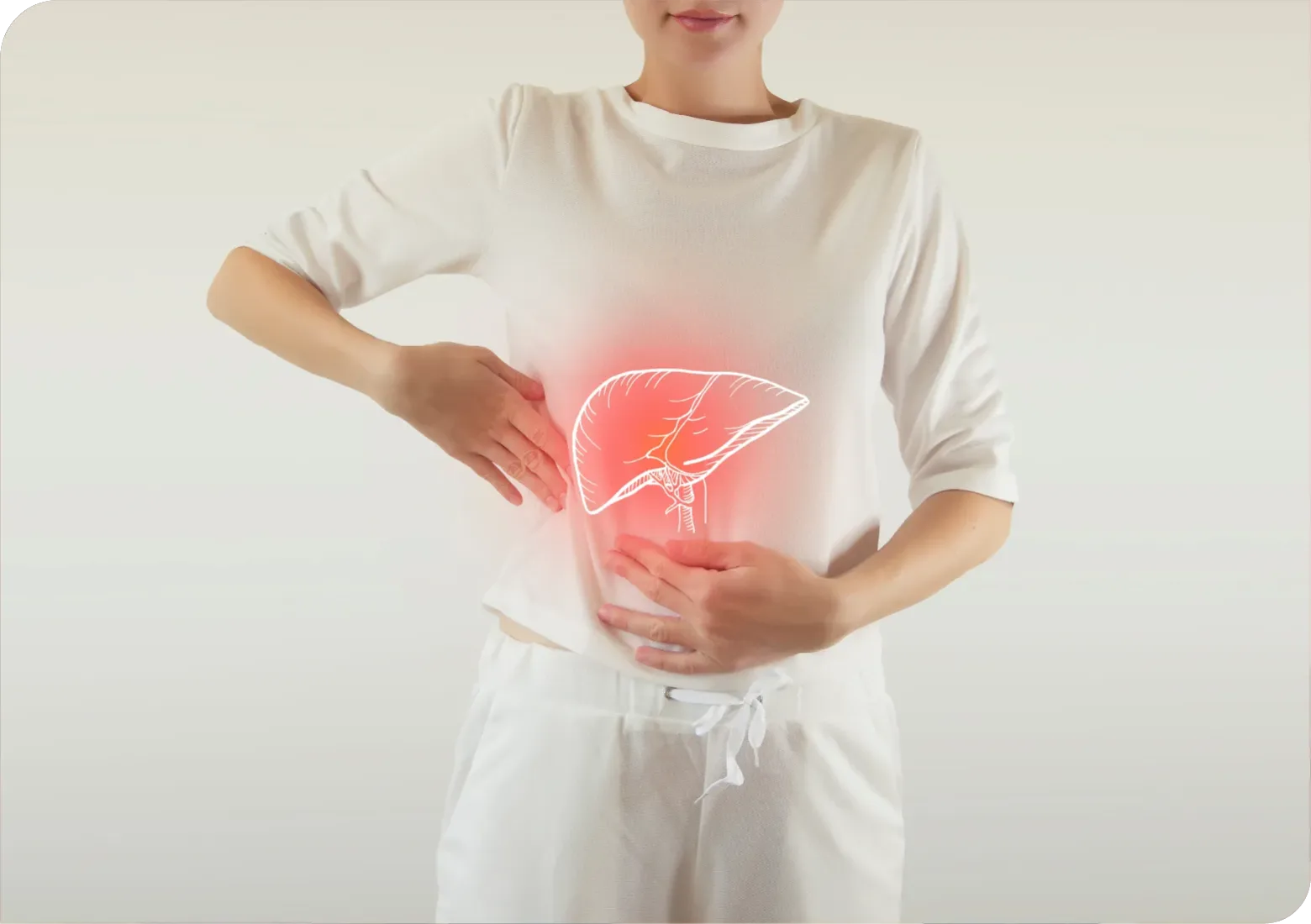Protecting Your Liver: Essential Tips and Knowledge for Optimal Liver Health
October 31 • 2023

Have you thought about your liver health lately? If not, now is the time to do so. October is National Liver Awareness Month. Your liver is an essential part of keeping you healthy and we want to give you information to make sure you’re living your best and healthiest life.
We’ll be diving into what your liver is, what it does, the symptoms of liver problems, and the best for last: tips on keeping your liver healthy.
What is the liver?
The liver is the largest solid organ in your body and performs many of the essential tasks that help us function and keep us healthy. It is located in the upper right-hand portion of your abdominal cavity beneath your diaphragm and on top of your stomach, right kidney, and intestines.
What does the liver actually do?
The liver does much more than we realize. It’s an essential part of how our body functions and has more than 500 vital functions that have been identified to keep us healthy. Below are only a few of the most important things the liver does for us.
Filters Your Blood
All the blood that leaves the stomach and intestines passes through the liver, which removes toxins, byproducts, and other harmful substances like drugs and other poisonous substances.
Produces Bile
That’s right, your liver produces bile, which is a critical component for digestion. Bile helps carry waste away and breaks down fats in the small intestine.
Resists Infections
When your liver is filtering your blood, it also removes bacteria from the bloodstream.
When you have an injury and you start bleeding, your body activates a complex system that helps your blood to clot. Your liver is in charge of producing that complex system. Problems with your liver can cause easy bruising and make your blood too thin.
What are symptoms of liver problems?
- Jaundice (This is when your skin and eyes start appearing a yellowish color)
- Abdominal pain and swelling
- Swelling in the legs and ankles
- Itchy Skin
- Dark urine color
- Pale stool color
- Chronic fatigue
- Nausea or vomiting
- Loss of appetite
- Tendency to bruise easily
There are many different types of liver diseases, but the most common are cirrhosis (scarring of the liver), hepatitis, cancer, and alcohol abuse.
If you are showing any symptoms and/or are worried about your health, schedule an appointment with your primary care physician right away. Seek immediate medical attention if you are experiencing extreme abdominal pain that isn’t going away or is getting worse.
Tips on keeping your liver healthy:
1. Limit Alcohol Consumption
Alcohol can cause scarring on your liver, so please make sure to drink in moderation. Scarring can prevent your liver from working normally.
2. Maintain a healthy weight
Non-alcoholic fatty liver disease (NAFLD), is becoming one of the fastest growing forms of liver disease. Maintaining a healthy weight can help your liver process fats. You can help prevent this by cutting back on processed foods especially those high in trans/saturated fats.
Like all tips on being healthy, eating a balanced diet is essential. There is no one food that solely supports your live health, but some of the best foods to eat are vegetables like broccoli, cauliflower, and brussels sprouts. Fruits with antioxidants, like blueberries, strawberries and raspberries are also a smart addition to your diet.
4. Exercise regularly
When you exercise regularly this can help burn triglycerides (a type of fat in your blood that also comes from extra calories your body does not need right away) and can also reduce liver fat. We suggest exercises that increase your heart rate like walking, yoga, and light cycling.
5. Use medications carefully
It’s always important to take your medication carefully and to follow the directions given to you by your doctor and pharmacist. When medications are not taken correctly, this can cause your liver to be harmed. Ways medications can be taken incorrectly, include:
- Taking the wrong medication
- Taking too much of recommended dosage
- Mixing medications
If you’re worried about your liver health, make sure to talk to your primary care physician, they can help guide you through the process of testing and finding the right specialist for you to go to.
If you’re looking for a new primary care physician, look no further. Aylo Health is always accepting new patients to make quality healthcare simple and convenient for you. Experience healthcare redefined at Aylo Health.